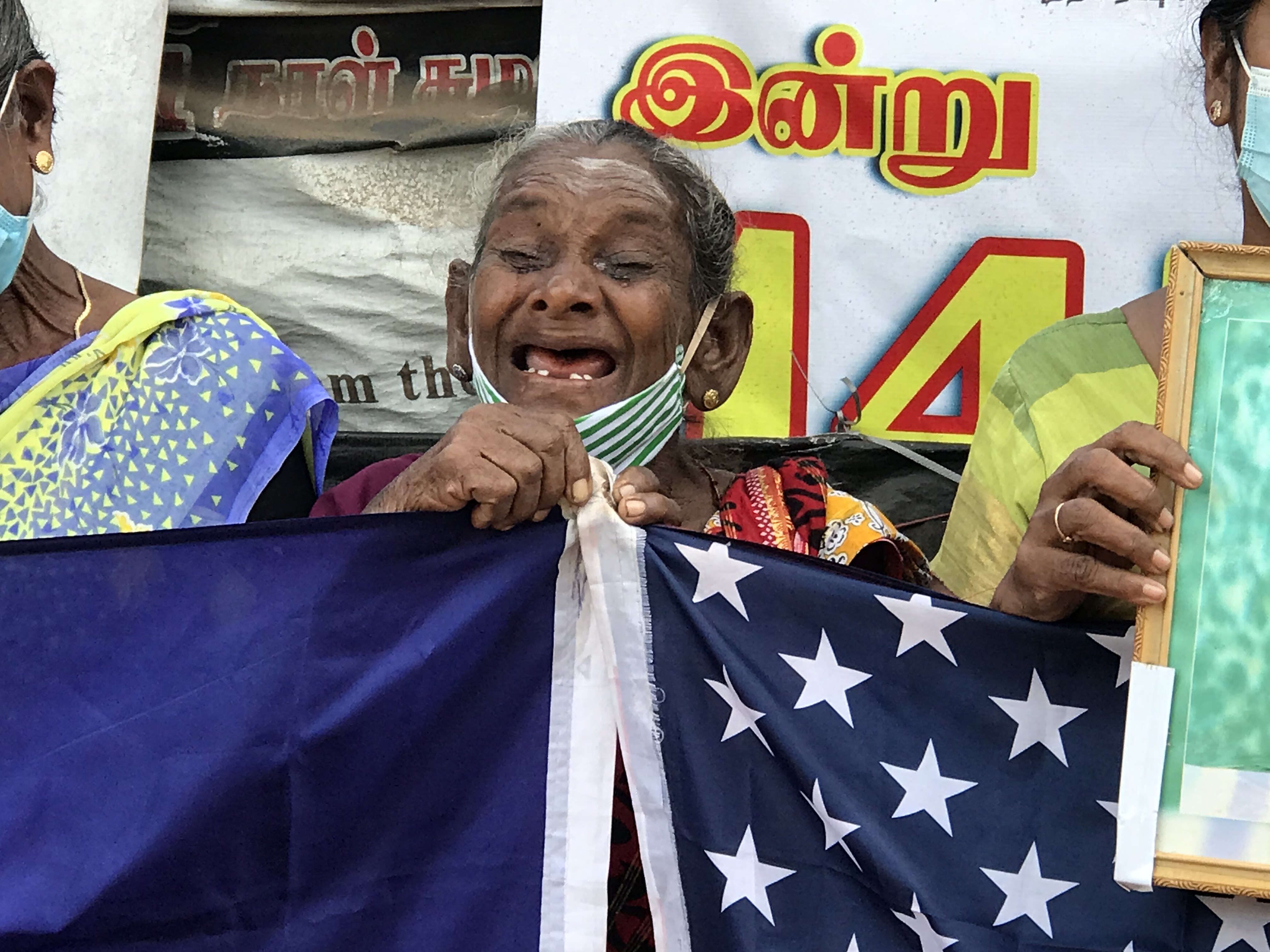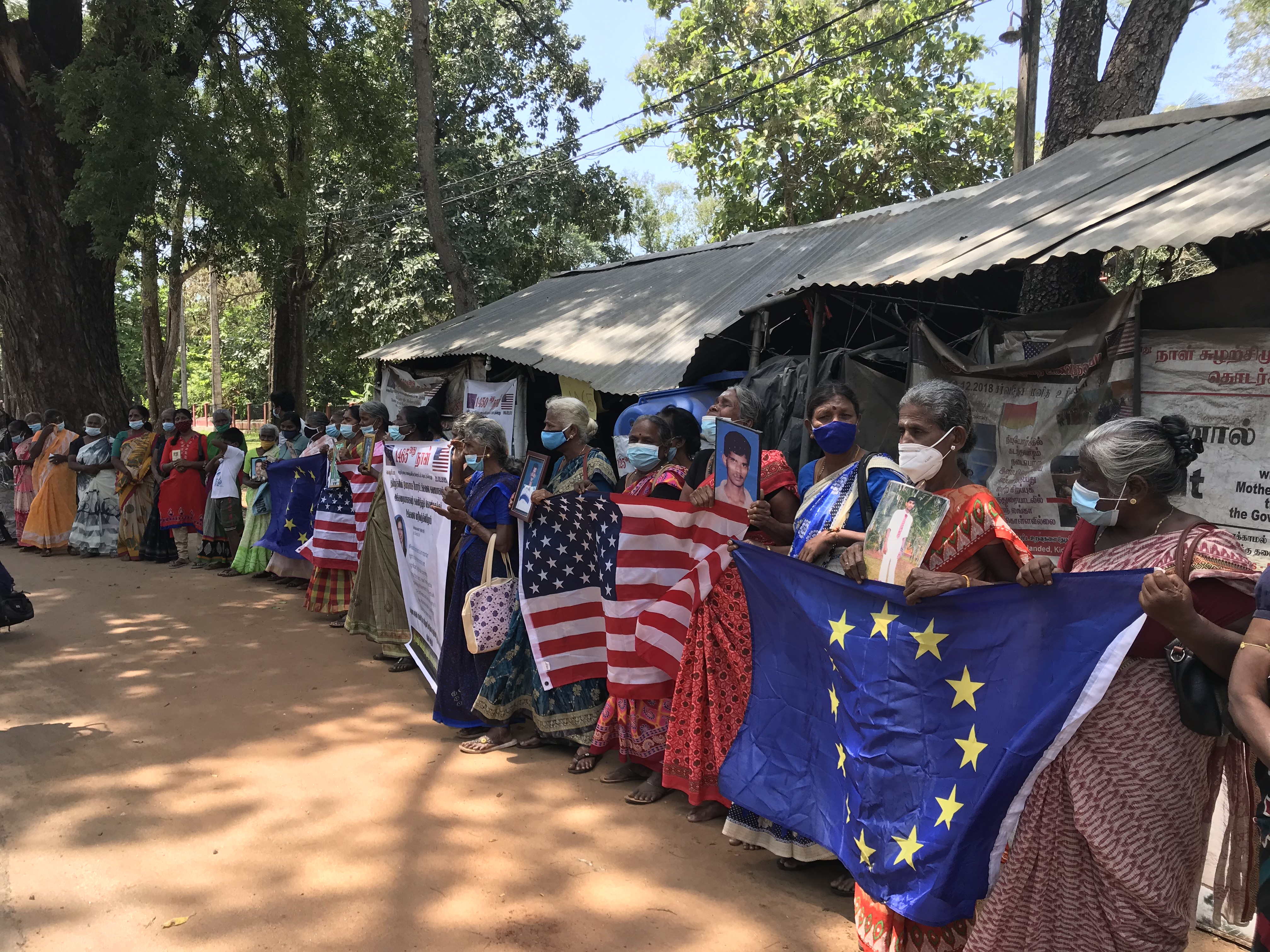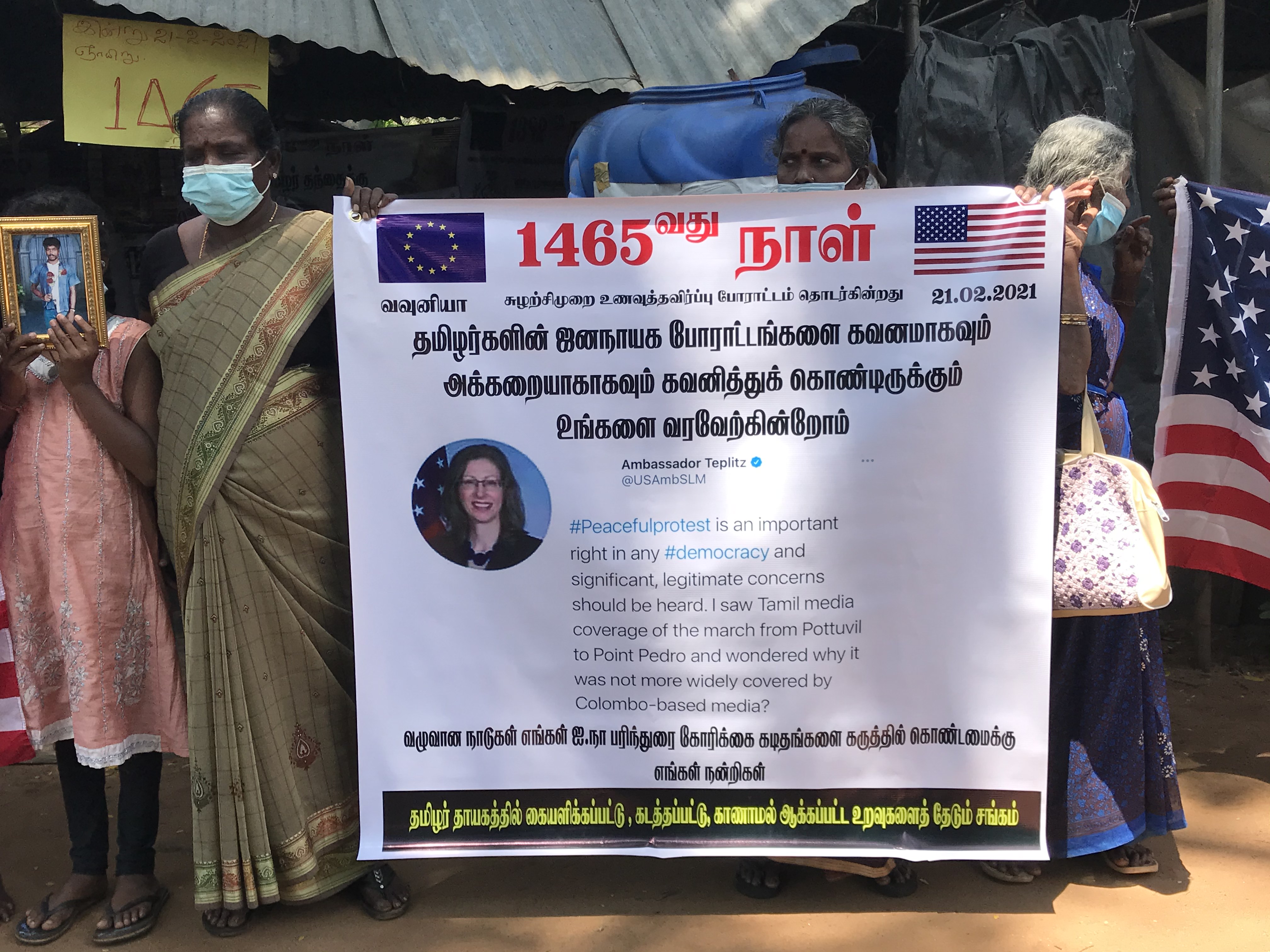
The families of the disappeared in Vavuniya, criticised the draft United Nations Human Rights Council (UNHRC) resolution, highlighting its failure to acknowledge Tamils, the need for an independent international accountability mechanism and nothing alluding to Tamil self-determination.
Marking 1465 days of continuous protests on Sunday (21st Feb), the families of the disappeared, stated that the resolution “upsets Tamils and does not offer any respect to the victims and the dead”.

The families of the disappeared secretary, Gopalakrishnan Rajkumar said, “We regret that the initial resolution of the UNHRC did not address the need for the ICC and a referendum. In their resolution, nothing was mentioned about Tamils.”
Rajkumar highlighted that former Special Assistant to the Commissioner General of The United Nations Relief and Works Agency for Palestine Refugees in the Near East (UNRWA), Charles Petrie also expressed his disappointment. “He issued a statement saying the United Nations (UN) does not have the courage to punish Sri Lanka.”
“After the UN neglected the Bosnian struggle, the United states and the European Union intervened to save Bosnia from the ongoing genocide and helped build a self-governing sovereign state for the Bosnian people,” he emphasised.
One of the mothers at the protest urged the UN to immediately provide a solution after the Sri Lankan government's continued neglect towards calls for justice and accountability.
“We have been on the streets continually telling the government about our issue. They have not listened at all.
— Tamil Guardian (@TamilGuardian) February 23, 2021
The UN must address our issue and provide a solution... we pray to god. There is no humanity or compassion for human lives... the UN must bring an end to this." pic.twitter.com/re8vqiUlDC
The families of the disappeared, who have been protesting across the North-East urging for international justice after continued failure of domestic accountability mechanisms, expressed their gratitude to foreign countries for their support in the plight.

Rajkumar said, “We would like to thank US Ambassador Teplitz for condemning the Colombo-based media for its obscurity and lack of coverage of the P2P protests. It encourages us to continue our peaceful and democratic demonstrations and struggles.”
“To the countries that responded to our letter of recommendation UNHRC resolution, which includes an impartial international and independent mechanism - especially to Canada and Australia. We would like to thank you,” he added.
However, Rajkumar was also stressed the fears of Tamil parties working with the Sri Lankan government to water down the demands of the Tamil people in the North-East and seeking a unfavourably compromised domestic solution.
“We condemn the Tamil National Alliance’s (TNA) move to talk to the Sinhala government about a political solution ahead of the UNHRC session. It emphasizes that Tamils do not need US or Indian intervention. This is a trap to eliminate any strong resolution against Sri Lanka. Sumanthiran has always sought to show the world indirectly that Tamils are not interested in US or Indian intervention. This is what we have been saying to Tamils and our Tamil politicians for over 1465 days. We call on the United States, the European Union and India to intervene to help the Tamils in reaching a suitable political solution and economic development.”
The Sri Lankan Terrorism Investigation Division (TID) investigated Rajkumar in Vavuniya on Monday, for his participation and a statement of the details of the hunger strike the families of the disappeared took part in earlier this month.



